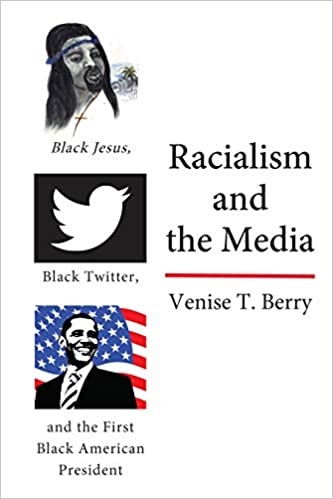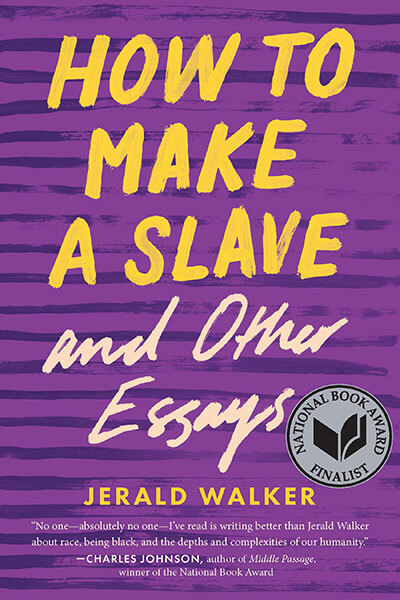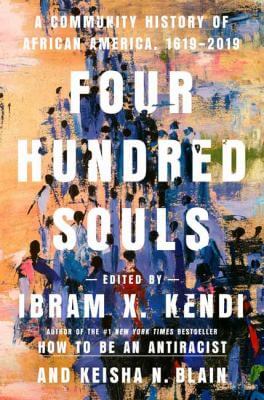
- This event has passed.
Black Author’s Panel (Virtual Event)
July 31, 2021 at 11:00 am - 12:30 pm
FreeEvent Navigation
Sponsored by Pearson
This event coordinated by Prairie Lights Books & Café.
Register for the event HERE.
Moderator
Arnold Daniels Jr. is a former U.S. State Department Liaison. He is an Anthropologist, entrepreneur, educator and volunteer with the African American Museum of Iowa. Mr. Daniels has taught Anthropology, Criminal Justice, Cultural Geography, English, History, and Sociology at several East Coast colleges and universities. A longtime resident of Washington, D.C., he now makes his home in Cedar Rapids, Iowa.
Panelists
 Venise Berry, Ph.D.
Venise Berry, Ph.D.
Book: Racialism and the Media: Black Jesus, Black Twitter and the First Black American President (2020)
Prof. Berry received a BA (1977) in journalism and an MA (1979) in communication studies from The University of Iowa. Her PhD was awarded in 1989 in radio, TV, and film at the University of Texas in Austin. Her professional media career began in radio news but has expanded into teaching, media research, and criticism, as well as fiction, script, and nonfiction writing.
She is the author of three national bestselling novels, So Good, An African American Love Story (Dutton/Penguin, 1996), All of Me, A Voluptuous Tale (Dutton/Penguin 2000), and Colored Sugar Water (Dutton/Penguin/Putnam 2002). In 2003 she received the Creative Contribution to Literature award from the Zora Neale Hurston Society. All of Me received a 2001 Honor Book Award from the Black Caucus of the American Library Association. Also in 2001 she was recognized with an Iowa Author Award from the Public Library Foundation in Des Moines.
Berry’s research is in the area of African American Cultural Criticism. She is developing a theory called “racialism,” which involves the influence of the media on African American images and messages. She is published widely in academic circles with numerous articles based on her research in the area of media, youth, and popular culture.
 Jerald Walker
Jerald Walker
Book: How to Make a Slave and Other Essays (2020)
A graduate of the Iowa Writers’ Workshop, Jerald Walker has published in magazines such as Creative Nonfiction, The Missouri Review, The Harvard Review, Mother Jones, The Iowa Review, and The Oxford American, and he has been widely anthologized, including five times in The Best American Essays. Walker is the author of Street Shadows: A Memoir of Race, Rebellion, and Redemption, recipient of the 2011 PEN New England/L.L. Winship Award for Nonfiction and named a Best Memoir of the Year by Kirkus Reviews, and The World in Flames: A Black Boyhood in a White Supremacist Doomsday Cult. His latest book, How to Make a Slave and Other Essays was a Finalist for the 2020 National Book Award in Nonfiction. He has received fellowships from the James Michener Foundation and the National Endowment for
the Arts.
Walker’s doctorate is in Interdisciplinary Studies, combining the fields of African American literature, African American history, and creative writing. Prior to arriving at Emerson, he was an Associate Professor of English at Bridgewater State University.

Dr. Mary E. Hicks
Essay: “The Middle Passage,” in Four Hundred Souls: a Community History of African America, 1619-2019, edited by Ibram X. Kendi and Keisha N. Blain The middle passage stands as one of the greatest examples in history in which dehumanizing suffering is inflicted on fellow human beings.
Dr. Hicks is an assistant professor at Amherst College. Her current book project, Captive Cosmopolitans: Black Mariners and the World of South Atlantic Slavery, 1721-1835 (forthcoming with Omohundro Institute of Early American History & Culture for The University of North Carolina Press), examines the maritime dimensions of the African Diaspora, with a particular focus on eighteenth and early nineteenth century colonial Brazil. By concentrating on the seafaring activities of enslaved Africans and creoles, her work integrates the economic and cultural histories of the Bight of Benin and Salvador da Bahia during the era of the late slave trade, and uncovers the heretofore unexamined commercial agency of subalterns in the South Atlantic World. Enslaved and free seamen in these culturally hybrid urban milieus, she argues, spearheaded exchanges of material goods, medicinal and navigational knowledge across the Atlantic Ocean.
More broadly, Hicks’ research seeks to interrogate the multiplicity of connections between coastal West Africa and Brazil through the lens of mutual cultural, technological, commercial, intellectual and environmental influences. Furthermore, she aims to redefine how historians understand experiences of enslavement and the middle passage. In addition to investigating the lives of African sailors, her current work also explores the cultural and religious lives of enslaved and freed African women in Salvador da Bahia. Her published work includes: “Financing the Luso-Atlantic Slave Trade: Collective Investment Practices from Portugal to Brazil, 1500-1840,” in the Journal of Global Slavery and “Transatlantic Threads of Meaning: West African Textile Entrepreneurship in Salvador da Bahia, 1770- 1870,” in Slavery & Abolition.
